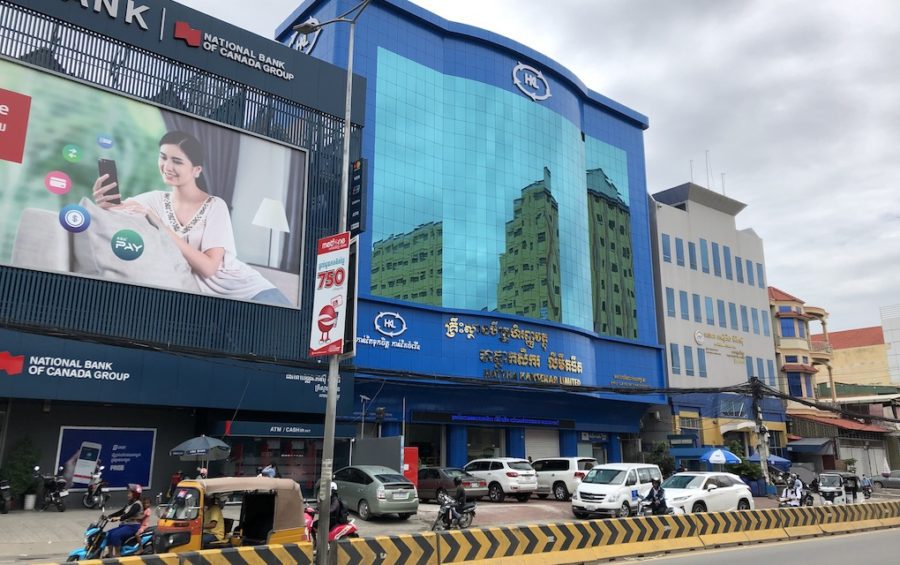A government spokesman has called for a closed-door meeting with the authors of a critical report on the nation’s microfinance sector, which found that loan debt had resulted in “serious and systematic human rights abuses” against borrowers.
The report, released earlier this month by rights organizations Licadho and Sahmakum Teang Tnaut (STT), said Cambodia’s levels of microfinance debt posed a “significant threat” to borrowers’ land holdings, among other criticisms, but officials and industry representatives denied there were widespread problems in the sector.
Rath Sovannarak, director-general of the National Bank of Cambodia’s banking supervision department, said after receiving the report, the central bank had conducted an investigation, but so far it had not found any lending irregularities as alleged in the report.
“At that time, we had a lot of discussions with the [microfinance] association to find evidence. If there is any, we will take action immediately because each [microfinance] institution has to follow the law, but previously the institutions have done well in terms of following the law and they also have a code of ethics,” Sovannarak said.
Licadho and STT received invitation letters from the Council of Ministers on Friday evening requesting a meeting on September 4, said Naly Pilorge, Licadho’s director.
Staffers from both organizations planned to attend the meeting, Pilorge said.
“Licadho and STT stand by our report and welcome the opportunity to further explain the findings and recommendations of the report to any interested groups,” she told VOD before having seen the invitation.
A letter seen by VOD, signed by government spokesman Phay Siphan and dated August 30 invites STT director Soeung Saran to attend a closed-door discussion about “microfinance and impacts.” Pilorge said Licadho had received the same invitation.
Released on August 7 and drawing on 28 case studies of households that “suffered multiple and/or serious human rights abuses as a result of MFI debt,” the report highlights unethical and “predatory” lending practices by microfinance institutions (MFIs), and claims the sector relies on coerced land sales, child labor, debt-driven migration and other abuses to thrive.
Some other researchers of microfinance in Cambodia have also said that growing debt levels are unsustainable.
On Thursday, Siphan, the spokesman, said he planned to invite Licadho and STT representatives to discuss the varying views and issues raised in the report with civil society, government and MFIs.
“I will be ready to invite them to come for debate on whether their claims are correct or not. What arguments do they have?” Siphan said during a press conference at the Council of Ministers in Phnom Penh.
“I will set up a closed-door forum for the National Bank to invite all researchers to come together for discussion,” he said.
MFI leaders have said the report from Licadho and STT, “Collateral Damage,” painted the sector with a broad brush and its case studies were not representative of the sector at large, which had strict guidelines to ensure fair lending practices.
In a public Facebook post a day after the report’s release, Chea Serey, the NBC’s director-general of central banking, condemned unethical practices by financial institutions, and vowed to investigate allegations and “take necessary actions.”
Serey also alleged news coverage “coordination” meant to harm the microfinance sector’s image, and said she wished “there were more facts in the report than hearsay.”
The rights groups provided the report under embargo to a number of news organizations, including VOD, in advance of its release date.
This week, like Licadho, STT said they stood by the findings in the report.
Saran, STT’s director, said he welcomed any meeting — public or not — to discuss the report.
“If possible, having a roundtable between stakeholders is even better,” Saran said. “What we found is the truth.”
On Wednesday, Sok Touch, president of the Royal Academy of Cambodia, said the report’s conclusions were not based on scientific methods and that the research sample of 28 households was not representative of the more than 2 million people who hold microfinance debt in the country.
The report includes a disclaimer stating that the research is “not intended to be statistically representative of Cambodia or of all MFI clients in the country.”
Additional reporting by Matt Surrusco
Updated at 10 a.m. on August 31, 2019 with additional comments from Naly Pilorge, noting that Licadho and STT received invitations on Friday evening to meet with the Council of Ministers.
(Translated and edited from the original article on VOD Khmer)













